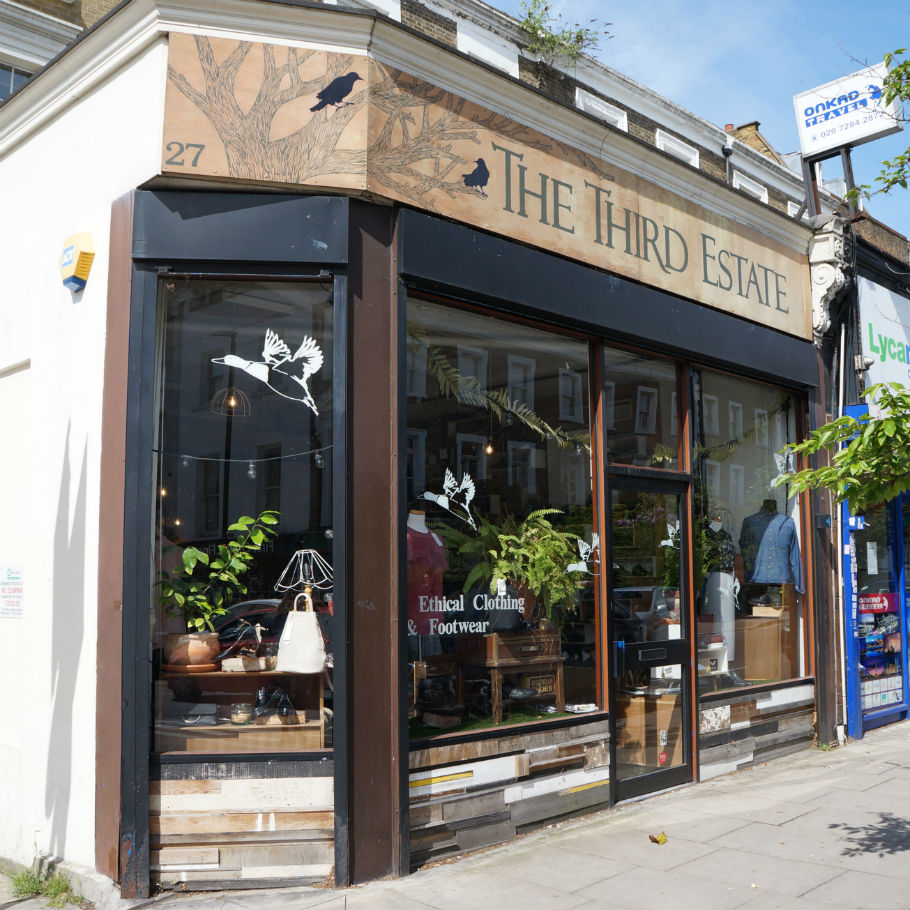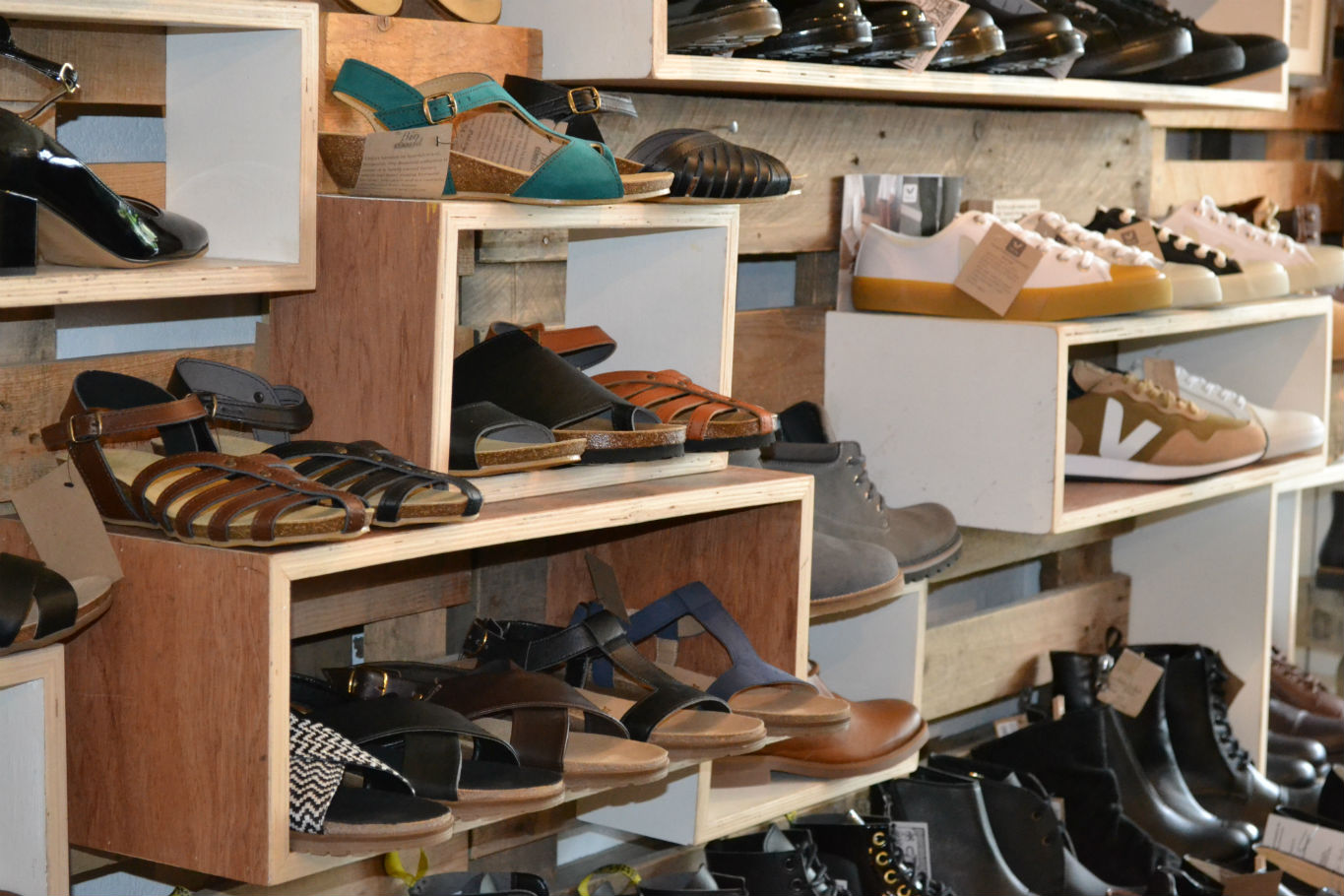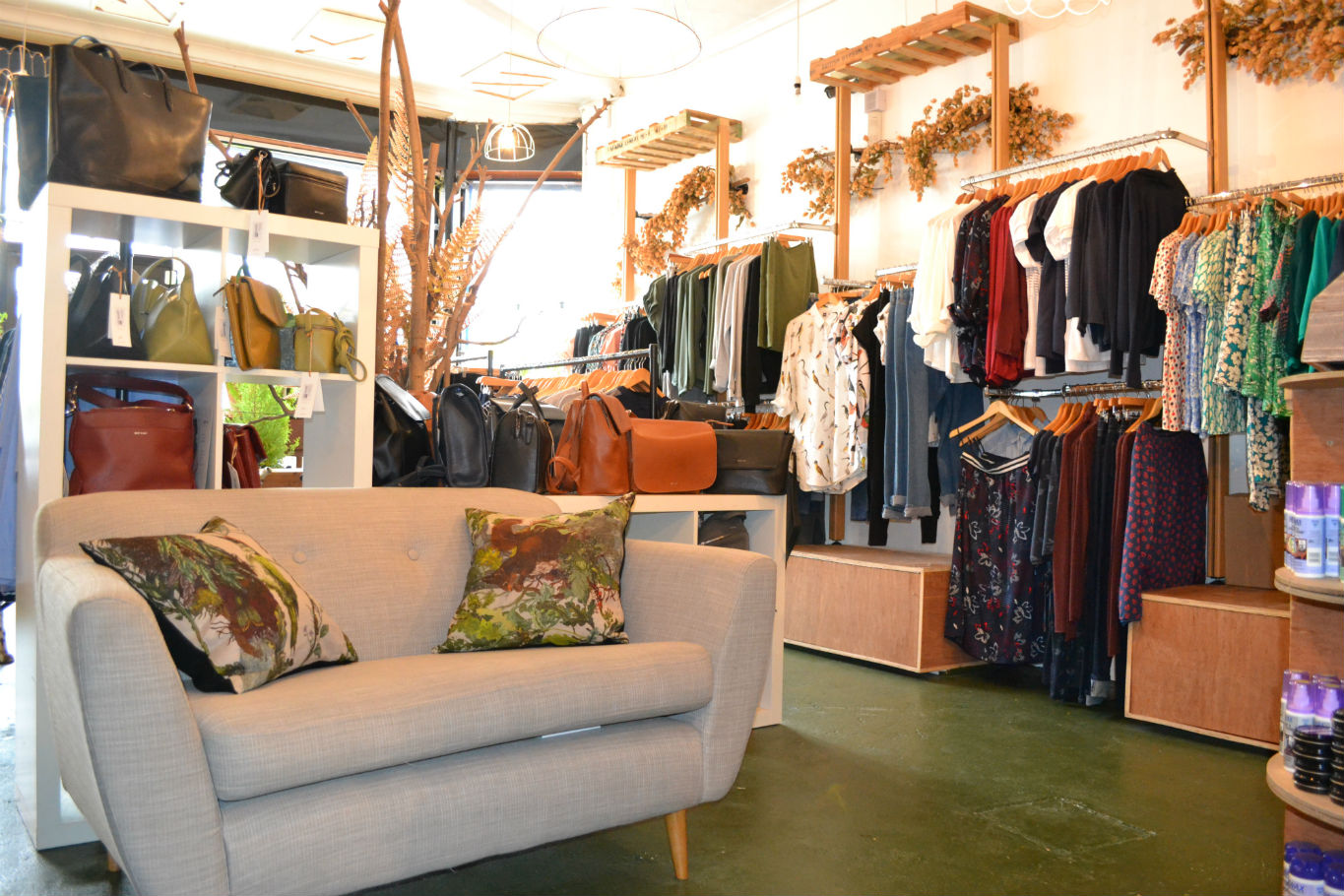L
ooking round James and Angela Corcoran’s vegan establishment, it feels like they’ve come a long way since starting in Leeds back in 2005. “We started selling animal-free clothing and footwear, moved down seven years ago and signed our contract here mid-2011,” says James.
They then opened their doors in early 2012. “The premises was an old plumber’s and just a shell when we took it,” says James, “I had to work full-time to fund it, which meant we took six months to get up and running. We didn’t have financial backing and couldn’t take any risks.”
“It was slow but our customers sorted us out,” he adds. “We’ve literally built it up from nothing. It either had to work or we’d go under. There are two of us: we do everything – all the orders, all the sales.”
Why did the couple choose Brecknock? “We were looking for a site for two or three years, somewhere accessible, and also a crossover location,” says James. “We saw Bumblebee, they were well-established, and the shoe repair on the corner, reputed to be the best cobbler in London, so people were coming here for a similar product. It’s close to both King’s Cross and Camden – and we also relied on the fact that a lot of our patrons are loyal.”
The passion the pair have shines through. “Ang studied fine art – for her it was the value of creativity, not churning out mass-produced items that didn’t have a lot of soul,” says James. “My background is in music and more political; not liking fast fashion with its zero responsibility.”
In fact, the roots of the outlet’s name lie there: the Third Estate was a section of society in pre-revolution France comprised of peasants and bourgeoisie. It made up almost 98% of the population.
The ethos is clear. “There aren’t many places in London doing everything we do,” says James. Those with lots of money can buy bespoke, but for us it’s about catering for the masses. We’re not selling at too high a price because that defeats the object. We’re profit-making, but that’s not the sole purpose of what we do. If it was, we wouldn’t have a shop because it’s more cost-effective being online-only.”
One of the reasons they’re in this business is because it encompasses what they care about. “I’m particularly impatient,” says James. “There’s not fast enough change for animal welfare, the environment and workers’ rights: it’s no good stocking stuff if it’s made by labourers in developing countries that have been exploited.”

“So it’s also got to be non-sweatshop and ethically made. Then there’s the environmental side, which is important. Cotton is the most pesticide-intensive crop in the world. It doesn’t impact us, but in developing countries the farmers and the local communities are affected.”
There’s one more thing the duo focus on, and that’s style: “We want to add the aesthetic too,” James says, “because ultimately it can be the most ethical thing in the world but individuals have got to want to wear it. For as long as we’ve been open, there’s nobody who doesn’t care at all about how they look.”
The interior is spacious, but cosy and homely, like you could spend time in there just chatting, either on the lacquered wooden bench or the comfy sofa, complete with bold Timorous Beasties cushions. There’s also William Morris wallpaper and a touch of foliage. “It’s somewhere men and women enjoy their shopping experience,” says Angela.
We get a lot of regulars,” says James, “clientele from overseas who travel specifically to come here because of the range we do. But it’s also really great that a lot of locals come here too, some because they want animal-free or sweatshop-free, but others because they just like the look of the products.”
The clothes certainly are striking – colourful animal prints, floral designs and vibrant patterns by designers such as Dedicated and Armed Angels. How about the textiles the designers use? “There are a lot of alternatives,” says James. “Bamboo is a really easy crop to grow – it doesn’t require any pesticides and can be really soft. We’ve got products made out of it. Then there’s Tencel, a plant fibre.”

When it comes to bestsellers, it’s shoes all the way. “They’re the biggest and most important,” says James, “the thing we’ve been doing longest. The most significant issue with footwear is leather or suede, but also the glues involved are often forgotten about.”
There are all sorts of alternative substances. James lists them: “Organic cotton, recycled plastic bottles, cord and pineapple fibre, a recent development. Plus synthetic micro-fibre – one-thousandth of a human hair in diameter, it’s a material that’s breathable and water-resistant, light yet strong.”
“As there’s been more interest, footwear brands have invested more. It’s just general economics really.” You can now get vegan Birkenstocks, a recent addition.
And we all know that the prevalence of plant-based food has soared. “We’ve noticed what we’re selling has increased over the past three years,” he says. “Veganism is more normalised, with greater coverage. We’ve benefited, but everything goes hand in hand. It comes down to enthusiasm, and the community trying to work towards something. The growth hasn’t just happened, everybody’s played their part.”
It’s well worth a wander along Brecknock to The Third Estate. It’s unlikely you’ll leave empty-handed – we didn’t.


